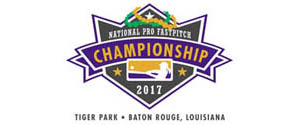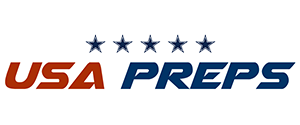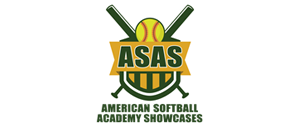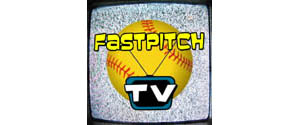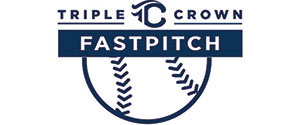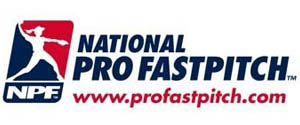The Umpire Corner
Reverse an Infield Fly
21 posts
• Page 2 of 3 • 1, 2, 3
What is the correct ruling for purposely dropping a fly ball by an infielder when more than one person is on base and less than two outs?
If it ain't broke, why fix it??
- Phantomz08
- Premium Member

- Posts: 414
- Joined: Tue Aug 04, 2009 3:53 am
To phantom8: No.
In order to "intentionally drop" the ball must first be caught. As stated this was not the case.
Correcting an uncalled IFF would remove any force outs, which in this case would be the force out at home, but the runner being tagged out at 2B - that out would stand. All other runners would be returned to the base at the time of pitch.
In order to "intentionally drop" the ball must first be caught. As stated this was not the case.
Correcting an uncalled IFF would remove any force outs, which in this case would be the force out at home, but the runner being tagged out at 2B - that out would stand. All other runners would be returned to the base at the time of pitch.
Tony Cannizzo
Umpire
"May all the close calls go your way"
Umpire
"May all the close calls go your way"
-

tcannizzo - Posts: 383
- Joined: Sun Jan 06, 2008 7:50 am
Phantomz08 wrote:What is the correct ruling for purposely dropping a fly ball by an infielder when more than one person is on base and less than two outs?
The rule comes into play whenever there is a runner on 1B (i.e. at least 1 runner would be forced). Effect is dead ball, B-R is out and runners have to return to last base at time of pitch.
If infield fly is ruled, it takes precedence over an intentionally dropped ball.
-

PDad - Premium Member

- Posts: 3439
- Joined: Sun Mar 29, 2009 4:52 pm
reconcomm wrote:...I then call time and reverse my called infield fly. Coach protested that I could not reverse the call. UIC backed the coach up. The game moved on without a problem.
Can an umpire reverse the called infield fly? Can we implement the infield fly if not called?
Have you spoken to the UIC? think your UIC was teaching you a lesson. You have to make that decision "on the fly" (pun intended) and stick with it. It's much easier to correct a decision by applying a rule rather than second-guessing a judgment.
Consider that same situation and not calling the infield fly. Everyone's safe. Now the defensive coach makes an appeal. You have more time to consider if the ball could be caught by ordinary effort. If you think it could have been caught (even if it wasn't), the runners can remain on their bases while the batter is out. But you can also easily defend not calling IF when the ball wasn't caught.
I tend to be conservative with the IF at younger ages. I rarely call it at 10U or 12U rec, and almost never hesitate when it's 18U.
The earlier comment was right. I learned the hard way that trying to "get it right" once ends up getting every close call appealed, discussed and agitated over. The line between judgment and rules disappears. It's OK to reverse a call by rule (pulled foot that PU sees but BU didn't for example). But with judgments, stick with the call and move on.
BTW, coaches almost never appeal a missed IF, especially if the ball was dropped.
- BearFlagFan
- Posts: 24
- Joined: Wed Oct 19, 2011 12:10 pm
I'm interested in how, applying the OP's reversed judgement, this might be fixed:
Bases loaded, no outs. The OP's scenario evolves....IFF is called, ball drops and R1 tries to scores from 3B. F3 throws to F2, who catches the ball well in advance of R1 reaching home plate....but the ball is dislodged while she is appropriately attempting to make the required tag. F2 never touches home plate with the ball in her possession, but has plenty of time to do so.....she doesn't do it because she is smart and knows that she has to tag the runner.
Now the OP changes his/her mind and figures it isnt really an IFF. What now?
Bases loaded, no outs. The OP's scenario evolves....IFF is called, ball drops and R1 tries to scores from 3B. F3 throws to F2, who catches the ball well in advance of R1 reaching home plate....but the ball is dislodged while she is appropriately attempting to make the required tag. F2 never touches home plate with the ball in her possession, but has plenty of time to do so.....she doesn't do it because she is smart and knows that she has to tag the runner.
Now the OP changes his/her mind and figures it isnt really an IFF. What now?
Run your mouth when I'm not around
Its easy to achieve
You cry to weak friends that sympathize
- Pantera, Walk
Its easy to achieve
You cry to weak friends that sympathize
- Pantera, Walk
-

Sam - Premium Member

- Posts: 3174
- Joined: Wed Jan 16, 2008 8:22 am
- Location: Norco, California
There's more than one "right" thing to do, because rule 10.3-C (in ASA; there is an equivalent in every rule set) makes it within the plate umpire's authority to "rectify" any situation where a delayed or reversed call places runners and/or defensive players in jeopardy. That means, he could basically do whatever he wants to do; because he can. The rule says so.
There is, in fact, only one smart thingto do. Eat it. If that means admitting your judgment, when made, proved to be less than perfect, so what!! Everyone on both teams had a fair opportunity as long as it stayed an infield fly; no one on either team would know what to do with the call reversed after the fact.
There is, in fact, only one smart thingto do. Eat it. If that means admitting your judgment, when made, proved to be less than perfect, so what!! Everyone on both teams had a fair opportunity as long as it stayed an infield fly; no one on either team would know what to do with the call reversed after the fact.
-

UmpSteve - Premium Member

- Posts: 461
- Joined: Fri Aug 21, 2009 10:38 am
UmpSteve wrote:There's more than one "right" thing to do, because rule 10.3-C (in ASA; there is an equivalent in every rule set) makes it within the plate umpire's authority to "rectify" any situation where a delayed or reversed call places runners and/or defensive players in jeopardy. That means, he could basically do whatever he wants to do; because he can. The rule says so.
There is, in fact, only one smart thingto do. Eat it. If that means admitting your judgment, when made, proved to be less than perfect, so what!! Everyone on both teams had a fair opportunity as long as it stayed an infield fly; no one on either team would know what to do with the call reversed after the fact.
Best answer on this thread. Hands down.
Run your mouth when I'm not around
Its easy to achieve
You cry to weak friends that sympathize
- Pantera, Walk
Its easy to achieve
You cry to weak friends that sympathize
- Pantera, Walk
-

Sam - Premium Member

- Posts: 3174
- Joined: Wed Jan 16, 2008 8:22 am
- Location: Norco, California
UmpSteve wrote:There's more than one "right" thing to do, because rule 10.3-C (in ASA; there is an equivalent in every rule set) makes it within the plate umpire's authority to "rectify" any situation where a delayed or reversed call places runners and/or defensive players in jeopardy. That means, he could basically do whatever he wants to do; because he can. The rule says so.
Well, almost, but not quite. For example, the umpire really should not award outs that did not occur (outside of what is determined by rule, not judgment) which I've seen some umpires try to do.
There is, in fact, only one smart thingto do. Eat it. If that means admitting your judgment, when made, proved to be less than perfect, so what!! Everyone on both teams had a fair opportunity as long as it stayed an infield fly; no one on either team would know what to do with the call reversed after the fact.
In these situations where the umpire had second thoughts, I agree. As noted months ago, the judgment on an IF is whether the ball could be caught with ordinary effort, not that it was or that the effort is made. As presented, the original call of IF was apparently correct.
The only reason I bring it up is because these scenarios involved the judgment of the umpire. If the scenario involved an umpire declaring an IF when the required parameters were not in place, the umpire cannot eat that one as it pertains directly to the application of the rule, not the judgment of the umpire.
- MTR
- Posts: 2317
- Joined: Thu Jan 03, 2008 5:21 am
I don't think anyone directly answered this question, although the correct answers were embedded in other responses.
Not under ASA or HS FP rules. IFR takes precedence over intentionally dropped fly ball (ASA 8-2J). Under IFR runners may advance at their own risk. But the force is off so any out must be a tag (unless they left early on a ball actually caught). On proper appeal, Batter out, Runner from 3B scores, Runner out at 2B on tag. Three outs but it's a timing play, so run scored before 3rd out recorded.
Now if they had called the intentionally dropped ball immediately, they'd have killed the play and runners would not advance, or if they did advance the runners would be returned to their bases before the manager could appeal the IFR.
Both coaches likely preferred this outcome. If properly ruled there are 3 outs but 1 run has scored. But ruled as described, only 2 outs and bases loaded. Offense sees potential of 4 or more runs. Defense sees force at 1B and easy force at every other base.
One additional note: The crew should have done nothing and let the initial play stand. They could properly enforce the IFR on appeal or they could even deny the appeal. The umpire could legitimately say the bobbled/dropped ball reinforced the umpire's judgment that the ball took more than ordinary effort to catch. The ruling hinges on the umpire's judgment portion of IFR. But once they declared an intentionally dropped ball, they effectively said the ball could have been caught with ordinary effort.
Real 4-man? SS purposefully dropped ball in obvious IFR situation? Sounds like baseball to me, but let's pretend its FP for this discussion, which means more likely 3-man with a UIC at the field to make any protest ruling.Phantomz08 wrote:Bases loaded, 1 out with a four man umpiring crew. Ball is popped up to deep short, no IFF is signaled by any of the blue. Shortstop has trouble catching the ball even bobbling it a couple of times before it hits the ground. SS then picks the ball up and throws home for the force and the catcher throws to 2nd base and the girl that was on second is tagged, after she momentarily headed for third. Initially both were called out but after a long discussion between the four umps, they rule it was an IFF and that the shortstop purposely dropped the ball. Effect was that Batter was called out for IFF, but all other runners were allowed to stay at their previous base. Now there are two outs and bases still loaded.
Was this done correctly?
Not under ASA or HS FP rules. IFR takes precedence over intentionally dropped fly ball (ASA 8-2J). Under IFR runners may advance at their own risk. But the force is off so any out must be a tag (unless they left early on a ball actually caught). On proper appeal, Batter out, Runner from 3B scores, Runner out at 2B on tag. Three outs but it's a timing play, so run scored before 3rd out recorded.
Now if they had called the intentionally dropped ball immediately, they'd have killed the play and runners would not advance, or if they did advance the runners would be returned to their bases before the manager could appeal the IFR.
Both coaches likely preferred this outcome. If properly ruled there are 3 outs but 1 run has scored. But ruled as described, only 2 outs and bases loaded. Offense sees potential of 4 or more runs. Defense sees force at 1B and easy force at every other base.
One additional note: The crew should have done nothing and let the initial play stand. They could properly enforce the IFR on appeal or they could even deny the appeal. The umpire could legitimately say the bobbled/dropped ball reinforced the umpire's judgment that the ball took more than ordinary effort to catch. The ruling hinges on the umpire's judgment portion of IFR. But once they declared an intentionally dropped ball, they effectively said the ball could have been caught with ordinary effort.
- BearFlagFan
- Posts: 24
- Joined: Wed Oct 19, 2011 12:10 pm
tcannizzo wrote:To phantom8: No.
In order to "intentionally drop" the ball must first be caught. As stated this was not the case.
Correcting an uncalled IFF would remove any force outs, which in this case would be the force out at home, but the runner being tagged out at 2B - that out would stand. All other runners would be returned to the base at the time of pitch.
There are three parts to this response, one an overly strict judgment (IMO), then two rulings of which only the first is right.
tcannizzo wrote:...In order to "intentionally drop" the ball must first be caught. As stated this was not the case.
That is one umpire's judgment, but that description isn't in the rules nor is it in any case I've found. I would also rule the following as intentionally dropping the ball:
- Teammate yells 'don't catch the ball' and SS clearly changes from attempting a catch to watching it fall
- SS squares up for the ball, raises glove to catch the ball, sees runners and decides to drop her glove to her side, letting ball fall.
- SS clearly sets up to throw the ball off the bounce instead of setting up to catch an easily caught ball.
I could go on. The point is, in my and many other umpires judgment, a ball doesn't have to be caught to be intentionally dropped. But like a check swing appeal it is ultimately the base umpire's job to make that call, with others only chiming in if asked by the base umpire.
tcannizzo wrote:... Correcting an uncalled IFF would remove any force outs, which in this case would be the force out at home, but the runner being tagged out at 2B - that out would stand.
Correct
tcannizzo wrote:... All other runners would be returned to the base at the time of pitch.
No. In the original scenario, there was 1 out, so BR was out on IFR and runner from 1B who was tagged after overrunning 2B would also be out, 3 outs. But even if there were no outs under IFR runners may advance with liability to be put out (ASA 8-4L). Therefore, under the bases-loaded scenario, runner at second who advanced to 3B remains at 3B, 2 outs.
- BearFlagFan
- Posts: 24
- Joined: Wed Oct 19, 2011 12:10 pm
21 posts
• Page 2 of 3 • 1, 2, 3







